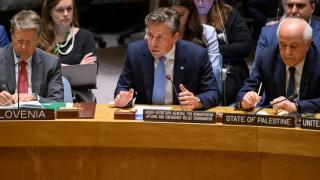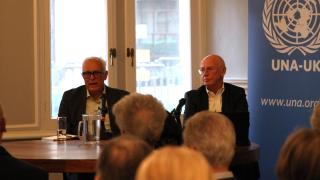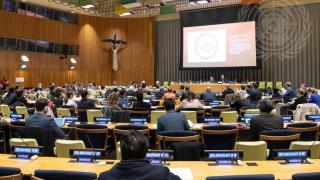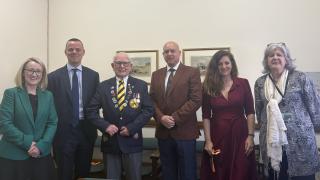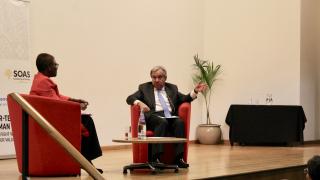
Today, António Guterres, Secretary-General of the United Nations, delivered a major speech on “Counter-terrorism and human rights: winning the fight while upholding our values” at SOAS University of London.
It was hosted by Baroness Amos, Director of SOAS, and attended by 300 students, journalists and members of civil society. The United Nations Association – UK (UNA-UK) was delighted to support the event.
You can watch it here and you can read the transcript here.
Addressing a packed room, the Secretary-General set out a robust, comprehensive and principled approach to countering terrorism, emphasising that:
Terrorism is fundamentally the denial and destruction of human rights. The fight against terrorism will never succeed by perpetuating the same denial and destruction.
Terrorism thrives when disenfranchised people meet nothing but indifference and nihilism. It is deeply rooted in hopelessness and despair … societies based on respect for human rights and with economic opportunities for all represent the most tangible and meaningful alternative to the recruitment strategies of terrorist groups.
We need much stronger international cooperation on counter-terrorism … In a globalized world, the failings of one state can quickly become a threat to its neighbours and far beyond. Our watchwords should therefore be unity, solidarity and collaboration.
Praising the “inspiring” response of Londoners, Mancunians and others to terrorist attacks this year, he noted that:
The vast majority of terrorist attacks take place in developing countries. In 2016, nearly three-quarters of all deaths caused by terrorism were in just five states: Iraq, Afghanistan, Syria, Nigeria and Somalia.
He said that the root causes of terrorism included poverty, inequality, youth unemployment and lack of public services – areas the UN development system is working to address – but underscored that:
Nothing justifies terrorism - no cause, no grievance.
He set out five counter-terrorism priorities:
- Stronger international cooperation, including through greater exchange of information
- A sustained focus on prevention, including through sustainable and inclusive development, and investment in young people, who make up the majority of new terrorist recruits
- Upholding human rights and the rule of law to prevent instability and resentment
- Winning the battle of ideas by investing in social cohesion, and fighting bigotry and patriarchy
- Lifting up the voices of victims and survivors of terrorist attacks
He also announced plans to convene the first-ever UN summit of heads of counter-terrorism agencies in 2018.
Photo: George Mullens/ UNA-UK volunteer

